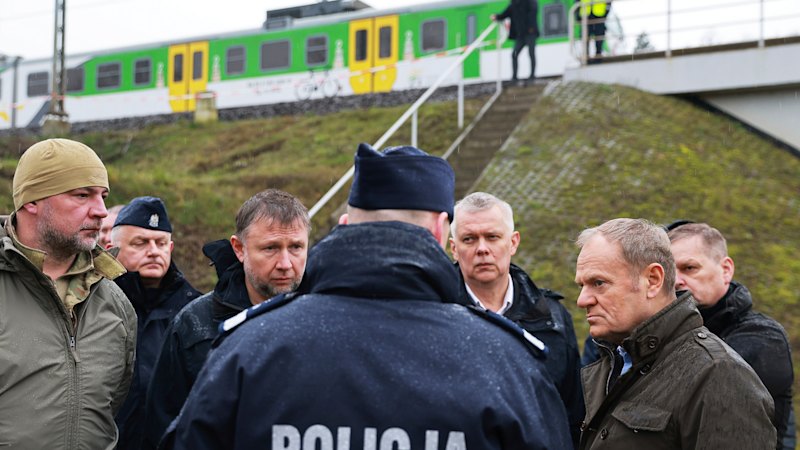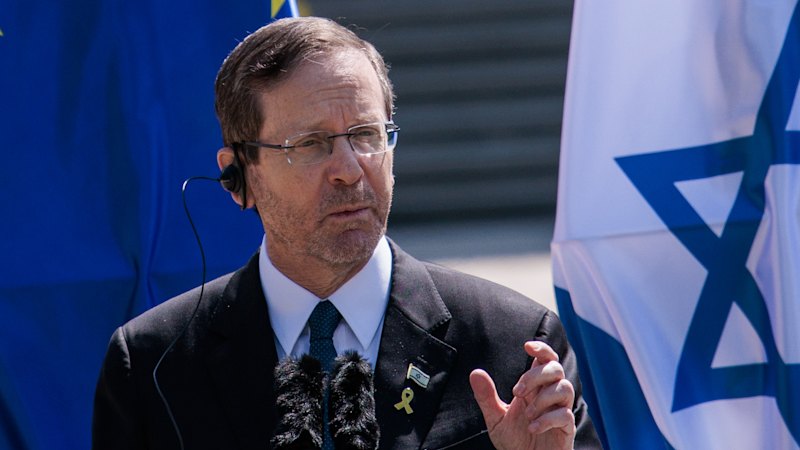
Berlin: Georgi Filipov, a Bulgarian visitor to France, stood before a French judge, claiming ignorance of his actions when he used spray paint and a stencil to imprint dozens of red hands along the Wall of the Righteous in Paris. This memorial honors thousands who saved Jews during the Holocaust. Despite his Nazi tattoos, Filipov denied any hate motivation and expressed regret for his hooliganism. “I’ve made bad choices in the past,” he told the court last month.
The judge sentenced Filipov, 36, to two years in jail, marking him as the latest example of a minor criminal performing the dirty work for operations that sow division across Europe. This incident is part of a broader pattern of petty criminals in Germany, Poland, and Britain being jailed for aiding Russian spy agencies, ultimately controlled by Russian President Vladimir Putin, a former KGB officer.
International Sabotage and Foreign Influence
Poland recently experienced similar sabotage when an explosion occurred on a railway line south of Warsaw, used for deliveries to Ukraine. Although no casualties were reported, the potential for lethal damage was significant. Poland’s Prime Minister Donald Tusk labeled the act as sabotage, and Security Services Minister Tomasz Siemoniak suggested a “very high” likelihood of foreign spy service involvement, stating, “We are dealing with the services of a foreign state, and not a gang of scrap metal thieves.”
This development follows a series of criminal activities linked to Russian influence, ranging from vandalism to arson and attempted assassination. The pattern is reminiscent of incidents in Australia, where security agencies have identified Iran as the instigator of antisemitic attacks, utilizing low-level criminals. In Europe, however, the focus is predominantly on Russian influence.
The Role of Petty Criminals in Russian Operations
Filipov was not alone in his actions. He faced trial alongside three other Bulgarians for defacing buildings in Paris with up to 500 blood-colored handprints. After completing their crime in May 2024, they fled to Belgium and then to Bulgaria, complicating efforts to trace them. Their acts initially appeared as domestic thuggery and antisemitism. However, police tracked them using video evidence and travel records, leading to the extradition and trial of three men in France. The ringleader, Mircho Angelov, remains at large, convicted in absentia.
Judge Nathalie Malet concluded that their actions were part of a “co-ordinated action from abroad carried out with hostile intent” to stir division in France. The men could not be charged as foreign agents because the relevant law took effect after their crime. However, the case highlights how foreign interference can exacerbate domestic divisions.
Comparisons and Patterns
Germany’s Interior Ministry warned of the Storm-1516 influence operation, which allegedly worked for Russia by spreading fake videos on social media to sway the federal election campaign. Last month, a German court convicted a man of Russian descent for planning arson attacks on military facilities and railways, aiming to influence political decisions regarding Ukraine.
“The court found that the accused, Dieter S., but also his accomplices, were aiming to spread fear in the population with the ultimate aim of triggering a political decision to stop supporting Ukraine,” said a court spokesperson.
Meanwhile, in Britain, six men were jailed for setting fire to a London warehouse, destroying aid destined for Ukraine. The ringleader, Dylan Earl, was reportedly groomed online by a chatbot linked to the Wagner Group, a mercenary operation supporting Russia. Judge Bobbie Cheema-Grubb emphasized the Russian Federation’s role in using social media to recruit saboteurs far from Moscow.
Global Implications and Expert Insights
In Germany, authorities detained a Polish-German citizen accused of running a dark web site advocating for the assassination of politicians, with the case pending trial. In Poland, two Russians were arrested last year for distributing Wagner Group propaganda.
Keir Giles, a consulting fellow at Chatham House, noted, “A lot of the time, it’s local idiots that are being recruited for this because they’re disposable agents. You throw a very small amount of money at them, and you don’t care if they get caught.”
In Australia, ASIO identified Russian operatives covertly stoking division, with links between pro-Russian influencers and offshore media likely directed by Russian intelligence. ASIO director-general Mike Burgess warned of Russia’s efforts to inflame domestic debates, using social media to spread polarizing commentary.
Giles suggests this interference is part of a “deterrence” operation by Putin to discourage Western support for Ukraine. However, he also highlights Russia’s broader goal of sowing societal division and testing the response capacities of targeted states.
Conclusion and Future Outlook
The tactics employed in Paris, such as street vandalism, are linked to broader Russian interference strategies, including drone attacks on European infrastructure. Europe is rapidly learning about the small-time criminals aiding Putin, and Australia must remain vigilant against similar threats.
As these cases unfold, the international community continues to grapple with the challenge of foreign interference and the exploitation of petty criminals in geopolitical conflicts. The ongoing investigations and trials will likely reveal further insights into these covert operations and their implications for global security.







